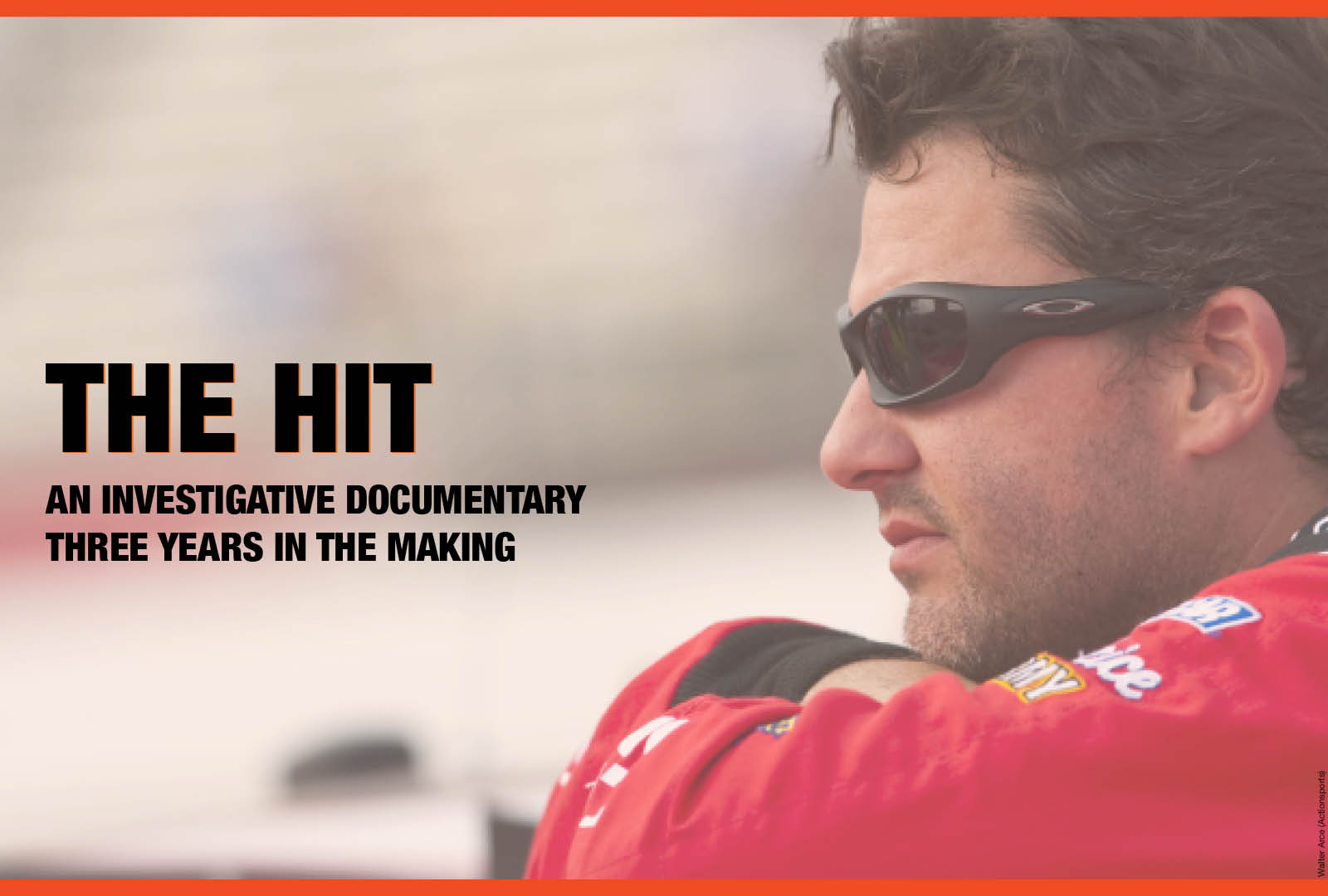Categories
documentaries Journalism lawsuits Sports“The Hit,” an investigative documentary that examines a crash in which a young driver was killed when NASCAR driver Tony Stewart’s car hit him on a racetrack eight years ago, has been selected for the Paladino d’Oro Sport Film Festival in Italy.

The documentary by Executive Director Chris Halsne reveals new details about the deadly crash at Canandaigua Motor Speedway in upstate New York that killed 20-year-old Kevin Ward Jr.
During the race, Stewart hit Ward’s vehicle, causing it to spin and crash. Ward got out of the car and then walked on the track gesturing as if angry, before Stewart’s car fishtailed into him. Stewart has never been charged in the case.
The documentary premiered last summer at the DC Independent Film Festival, where it won “Best DC film,” and also was screened at the LA International Film Festival. And this fall, the documentary was selected for Paladino d’Oro, a 42-year-old sports film festival.
The festival’s director, Roberto Marco Oddo, said in an email that entries are evaluated based on their artistic and technical qualities along with “films which enhance the dimension of sport, understood as a representation of human values, rules and rights.”
Halsne, an editor at the IRW who teaches investigative broadcast classes at American University, said the festival circuit is helping him reach a wider audience and learning how to improve the film based on how the public reacts to it.
Halsne and creative co-producer Isaias Medina were able to hear from an ESPN audience at the LA Film Festival, where the crowd shared technical questions and comments that a regular audience probably wouldn’t address.
“Members of the public give us feedback about their feelings on the film… how different pieces had impact on them,” Halsne said. “And that’s valuable because as you tell the story and tell a storyline, there’s a certain ebb and flow … this is part of human emotion.”
“The Hit” takes a scientific approach to examining the crash in which Stewart’s car fatally struck Ward as Ward was walking on the track at an Empire Super Sprints Race on Aug. 9, 2014. Digital Media Forensics experts at Knott Laboratory had been investigating the crash as part of their role in a civil case brought by Ward’s parents. Halsne, who worked with Knott Laboratory on a previous investigation, heard about the use of new computer technology to recreate the accident for the civil case and was intrigued at what they found.

After the case settled, Knott Laboratory was able to release the footage to the public. Halsne originally planned to write a feature about the technology, but after watching the video, which explains how video evidence was used and examined, he decided to do more research.
Halsne gathered a small team of investigative journalists, including Medina and Brian Collister, and began acquiring medical records, police interview footage and other outside expertise.
He also used Stewart’s original video depositions and spoke to Stewart’s biographer. Halsne said that the research was “more work I’ve ever put into anything behind the scenes.”
Having Stewart fans as well as the Ward family’s views created “this balance in the film … nothing’s black and white,” Halsne said. “In fact, that’s the central theme of this story.”
As of now, “The Hit” is still only showing on the festival circuit, where it has received strong reviews. The documentary’s success at the two earlier festivals has given Halsne and his team the ability to improve by making small artistic changes and edits, such as adding a new graphic. And he recently hired Porter Pictures in Beverly Hills to seek out streaming platforms.
Halsne said he made a promise to the Ward family to show what he and his team found.
“It’s an important story to tell,” Halsne said. “It’s a story about a small-town justice system being overwhelmed by riches and fame.”
As far as future projects or documentaries, Halsne said he’s always looking for stories that demand strong investigative reporting skills — especially stories “where flaws in government systems affect the public” and in which he may have to follow a complicated path to unravel the truth.
“I think those are stories that need to be told,” Halsne said. “I don’t think the public has the time, the energy, the resources, the knowledge to dig into government failures and corruption. But it’s something that I’m interested in doing for them.”





